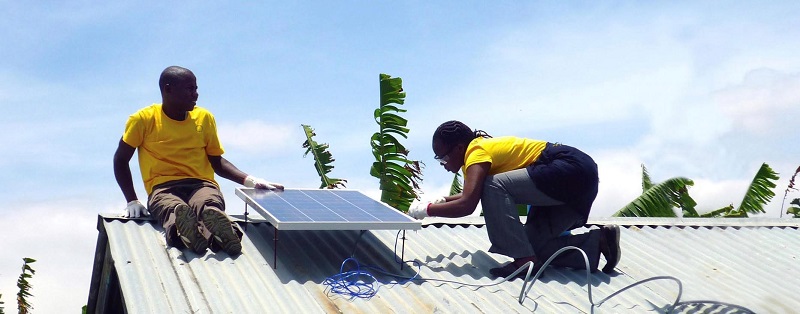On June 27, 2017, Mobisol announced its acquisition of Lumeter, a San Francisco-based pay-as-you-go (PAYG) software company. In the announcement, Stefan Zelazny, Chief Innovation Officer at Mobisol stated, “[Mobisol and Lumeter] are able to provide a hardware agnostic software suite that makes major consumer and commercial implementations possible. We see the Lumeter acquisition as a key step in our plan to expand the pay-as-you-go market for Mobisol, its off-grid partners and other technologies beyond solar.”
Lumeter’s software platform provides PAYG capabilities beyond solar and includes minigrids, solar pumps, and other agricultural technologies like rice mills. This expansion offers an opportunity to Mobisol to expand into other services.
Enhancing value from existing customers
The PAYG solar model has matured to attract substantial investments. According to Bloomberg New Energy Finance, the sector has attracted over $360 million in investment. As lead companies like Mobisol have scaled, the primary challenges facing PAYG companies have focused more on finance and distribution than technology.
As reaching new customers has become more challenging at larger scales, companies are trying to enhance the value of existing customers. M-Kopa, the Kenya-based leader in PAYG solar deployments, is financing televisions for customers with a good repayment history. The company has also started using fully paid for solar systems as collateral to financing mobile phones.
A handful of companies including PayGo Energy, and Kopa Gas are offering liquefied petroleum gas (LPG) on a PAYG model in Kenya and Tanzania. Instead of buying an entire LPG cylinder, customers can pay as they cook. This offers another PAYG market opportunity that PAYG solar companies could expand into.
The acquisition of Lumeter by Mobisol will provide future opportunities for Mobisol to financing other products like water pumps to enhance value from existing, credit-worthy customers.
Popular content
Leveraging repayment data
The customers of PAYG companies often lack credit histories making creditworthiness difficult to assess. Given the remote locations of many PAYG solar customers, repossessing systems when customers stop paying is expensive. The high cost of default makes performing accurate credit assessment particularly important.
The more information PAYG companies have on customers, the better their ability to assess the repayment risk of their customers. Enhanced risk assessment, in turn, brings down the cost of capital as investors have more confidence in PAYG companies’ risk assessment. After the Lumeter acquisition, Mobisol’s customer base will number 500,000 providing a large source of data to analyze existing and potential customer creditworthiness.
As PAYG companies increase in size, they need larger and larger amounts of working capital. Securitization of portfolios of customers is a promising option to quickly access large amounts of working capital. As an example, securitization of residential solar assets in the US rose from $53 million to $803 million in only two years.
In late 2015, BBOXX was the first PAYG solar company to securitize off-grid assets. For securitization to become a mainstream, companies need solid proof of the reliability for repayment. This makes the data from a large customer base essential to unlocking long-term sources of working capital.
Author: Dustin Zubke
This content is protected by copyright and may not be reused. If you want to cooperate with us and would like to reuse some of our content, please contact: editors@pv-magazine.com.


By submitting this form you agree to pv magazine using your data for the purposes of publishing your comment.
Your personal data will only be disclosed or otherwise transmitted to third parties for the purposes of spam filtering or if this is necessary for technical maintenance of the website. Any other transfer to third parties will not take place unless this is justified on the basis of applicable data protection regulations or if pv magazine is legally obliged to do so.
You may revoke this consent at any time with effect for the future, in which case your personal data will be deleted immediately. Otherwise, your data will be deleted if pv magazine has processed your request or the purpose of data storage is fulfilled.
Further information on data privacy can be found in our Data Protection Policy.